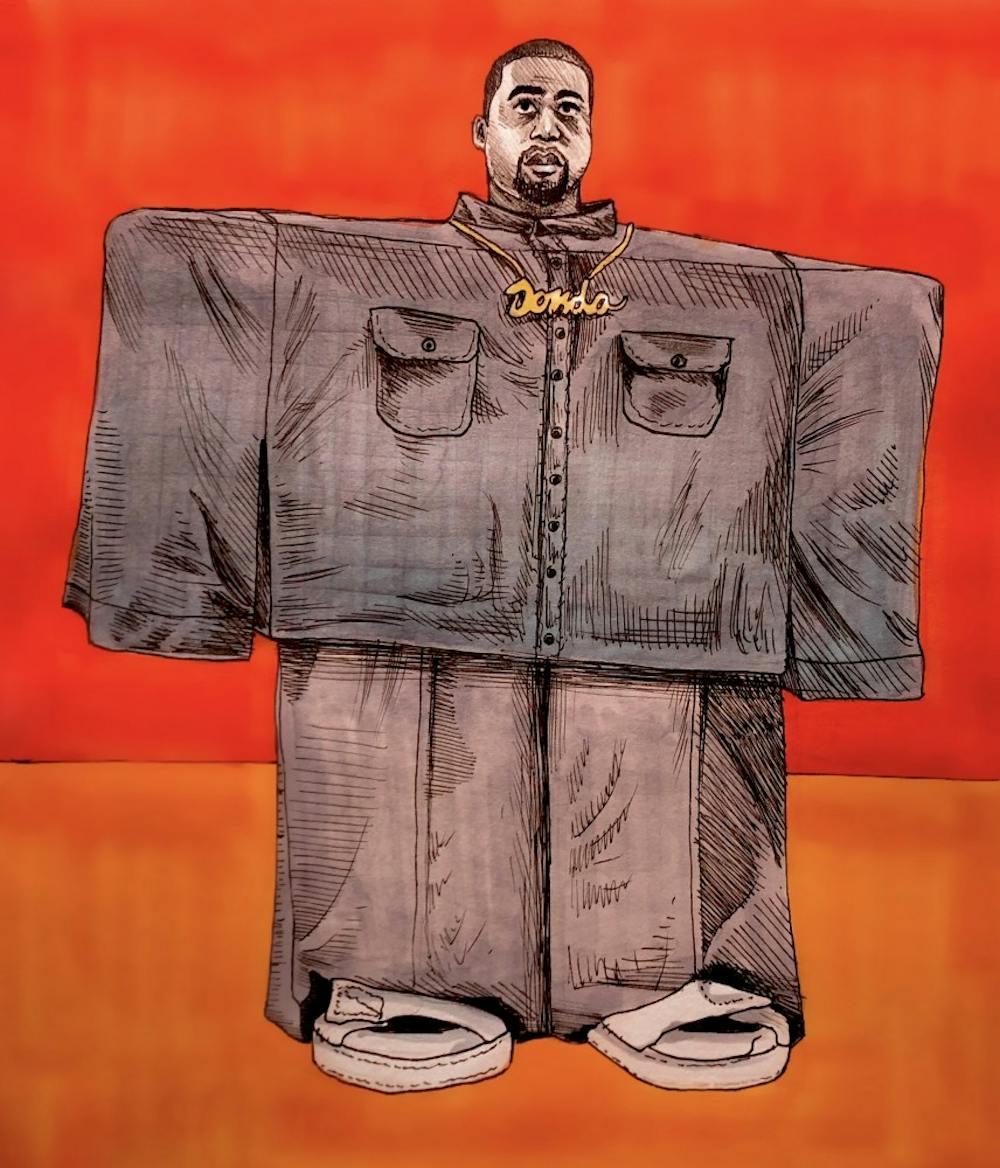Yeezus is a landmark in hip hop history and a lesson in innovation. It traded in the self–hatred and self–consciousness of My Beautiful Dark Twisted Fantasy (MBDTF) and externalized it into discontent and unadulterated rage towards the outside world. And, it did so through more piercing, sometimes incoherent lyrics and a heavy industrial sound that had never been heard in popular music before. It put aside all of hip hop’s clichés and conventions and, despite being initially polarizing for popular audiences, it has finally made enough of an impact in the music world that its place and influence on the hip hop timeline are undeniable. As Philippe Atallah (C '21), said in an interview with Street, “I used to place it last on my Kanye power ranking, now it’s close to first.”
Part of the reason why Yeezus received critical acclaim but didn’t resonate with audiences is that it was released in the wake of MBDTF. Yeezus’ predecessor was, and still is, according to public opinion (or the internet’s, at least) as one of the best hip hop albums of all time for its introduction of narrative themes and orchestral instrumentation. Fans were expecting more of the same, but instead, Kanye decided to shift the paradigm and present us with a completely different style. Where MBDTF used soulful samples, a medley of cascading 808s and wide instrumentations to present us with a colossal yet intricate sound, Yeezus went for an abrasive, minimal approach that shook the listener to their core with an experimental sonic landscape. This sound proved too abrasive for some, but, over time, public opinion shifted into accepting and even praising the album’s borderline grotesque sound, as is exemplified in recent music forum posts.
Kanye is known for his erratic behavior, both in the studio and in public life, trading in one sound for the next in the blink of an eye. He’s even pinpointed his insanity as the source of his genius in lyrics like “name one genius that ain’t crazy.” And, his unconventional approach to production and lyricism has led to countless examples of innovative new sounds that gather the admiration of critics, audiences and his peers. For example, J Dilla said to Kanye that the way he chopped “Distant Lover” on his song “Spaceship,” flipping a 3/4 rhythm to fit a 6/4 time signature, “fucked him up” and gave him a new interpretation of the meaning behind the original sample. Another example of his insanity rendering fresh results is his use of chops from “Will You Still Love Me Tomorrow” by The Shirelles in “Devil In A New Dress.” Here, he takes snippets that couldn’t be further apart from the original sample and amalgamates them together to form a beat that is as far removed from the source as can be.
West’s success in creating an album that was ahead of its time isn’t due to his prowess as a visionary exclusively. It was also caused by his influence on the music world around him. In other words, he didn’t predict the future; he changed it.
Kanye West’s popularity is undeniable, with 21 Grammys to his name and the world record for best–selling artist of all time, some would say he’s reached Beatles' level of fame. This puts him in a position where his work is "Bound 2" have an impact on the music world by sheer force, if not by virtue of inherent quality. Furthermore, he’s set a precedent for this same type of unexpected influence with his 2008 record, 808s and Heartbreak. Despite initial criticism by fans and critics alike, this album changed the hip hop landscape forever, initiating the “wave of inward–looking sensitivity” that eventually gave way to the popularity of Drake’s early career.
Something similar is happening with Yeezus. We’re starting to hear its blend of hip hop with electro and acid house grow to prominence in artists like Vince Staples, whose album Big Fish Theory employs many of the tactics used by Yeezus to combine EDM with hip hop in a way that doesn’t make the two different sounds clash. For example, the pitch–shifted, metallic rising melodies of “Send It Up” are echoed in tracks like “Big Fish.” The album’s piercing approach to trap, as well as its progressively escalating harmonies, also resonate with artists like Travis Scott. The parallels between “Hold My Liquor” and Birds in the Trap’s opening song “the ends” are undeniable.
Nevertheless, the biggest influence Yeezus has had on popular music is, without a doubt, bringing the sound of industrial hip hop to the forefront of hip–pop. While the genre was certainly growing on its own in the more obscure circles of the internet, with Death Grips and P.O.S. at the vanguard, it didn’t rise from the underground and into the public realm until Yeezus hit the market. A recent example of this trend is in iridescence, Brockhampton’s most recent album. With its glitchy, mechanical samples in “Berlin” and “District’s” erratic, clangy synths, it uses the same drastic interval changes that bring “I’m In It’s” untamed backing melody to mind. Run The Jewels, Danny Brown and JPEGMAFIA, are just a few examples of the industrial sound’s recently acquired visibility.
And now that the dust has finally settled and Yeezus’ place in mainstream hip hop is recognized by most, Kanye is releasing Yandhi. An album that, if only from the title, we can infer will have the same philosophy behind its drive to innovate, all the while maintaining the same unpredictable shift in sound and lyrical themes that we’ve come to expect from each of Ye’s releases.







